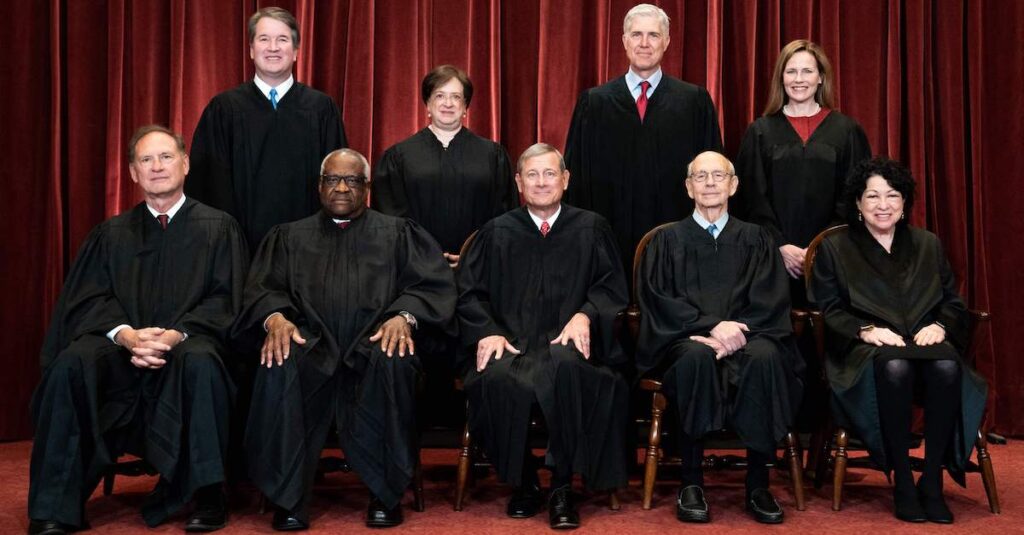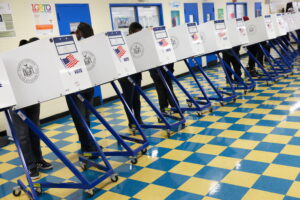Big victory today for the 2nd and 4th amendments as SCOTUS ruled 9-0 today that law enforcement can not enter our homes and unconstitutionally seize firearms without a warrant!
2 min read
Seated from left: Associate Justice Samuel Alito, Associate Justice Clarence Thomas, Chief Justice John Roberts, Associate Justice Stephen Breyer and Associate Justice Sonia Sotomayor, standing from left: Associate Justice Brett Kavanaugh, Associate Justice Elena Kagan, Associate Justice Neil Gorsuch and Associate Justice Amy Coney Barrett pose during a group photo of the Justices at the Supreme Court in Washington, DC on April 23, 2021. (Photo by Erin Schaff / POOL / AFP) (Photo by ERIN SCHAFF/POOL/AFP via Getty Images)
In a unanimous opinion handed down Monday, the Court ruled in Caniglia v. Strom that even the so-called “community-caretaking” exception to the Fourth Amendment does not justify a warrantless search and seizure in a private home.
Police entered the home of Edward Caniglia after Caniglia’s wife asked them to conduct a wellness check. Caniglia had brandished a gun while expressing a possible intent to inflict harm on himself. While in the home, police seized Caniglia’s firearms and ammunition.
Caniglia later sued the officers under 42 U.S. Code § 1985 for violation of his civil rights, claiming the seizure violated his Fourth Amendment rights against unreasonable searches and seizures. The lower court found in favor of police, ruling that the officers’ actions fell within a “community caretaking exception” to the warrant requirement. This decision had been based on caselaw that found that police officers often have noncriminal reasons to interact with motorists on public roadways. The Supreme Court, however, clarified in its opinion that any such exception potentially applicable on roadways does not carry over into private homes.
Justice Clarence Thomas penned the brief four-page decision, in which he pointed out that expanding the reach of the community caretaking exception is inappropriate. The fact that “police officers perform many civic tasks in modern society was just that—a recognition that these tasks exist, and not an open-ended license to perform them anywhere,” wrote Thomas. “What is reasonable for vehicles is different from what is reasonable for homes,” he continued.
The duo of Chief Justice John Roberts and Justice Stephen Breyer joined in a single-paragraph concurrence, pointing out that “[t]he role of a peace officer includes preventing violence and restoring order, not simply rendering first aid to casualties,” and issuing a reminder that, “[a] warrant to enter a home is not required, we explained, when there is a ‘need to assist persons who are seriously injured or threatened with such injury.’”
Justice Samuel Alito delivered a lengthy solo concurrence, in which he pointed out a number of questions the majority declined to address in its opinion. Alito’s inquiries centered around the proper analysis applicable to situations in which police conduct searches and seizures while otherwise rendering some kind of aid.



